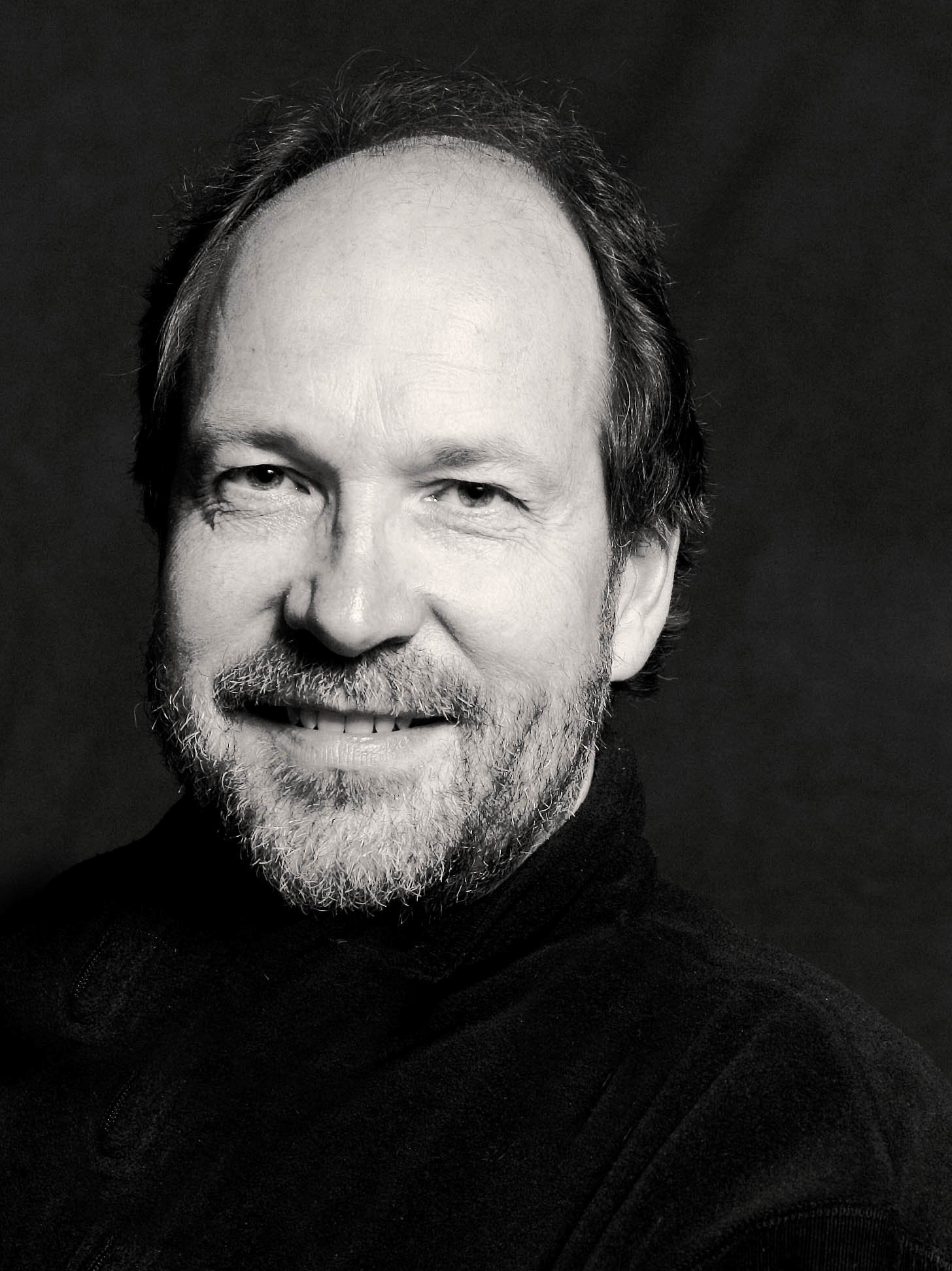Italian viola da gamba player, conductor, composer, Head of the Institute for Early Music, Professor at the Mozarteum Salzburg, and Visiting Professor at Royal College (London), Vittorio Ghielmi has been compared by the critics to Jascha Heifetz (“Diapason”) for his virtuosity. He has been praised for his new approach to the viol and to the sound of the baroque repertoire. He has performed as a soloist and conductor with the most famous orchestras (Il Giardino Armonico, Freiburger Baroque Orchestra, Akamus, Los Angeles Phil in the Hollywood Bowl Hall, Wiener Symphoniker).
As one of the leaders of the ancient music scene, he shared the stage with musicians such as Gustav Leonhardt, Cecilia Bartoli, and Reinhard Goebel, as well as Andràs Schiff, Thomas Quasthoff, or Viktoria Mullova. For three years, he has been assistant to Riccardo Muti at the Salzburger Festspiele. Since 1999 he forms a duo with the lutenist Luca Pianca. His ensemble Il Suonar Parlante Orchestra, founded in 2007 with the Argentinian singer Graciela Gibelli, is regularly invited to the most important venues (Berliner Philharmonie etc.) They devote themselves to a renewed investigation of the ancient music repertoire and to the creation of new projects. Vittorio has also performed together with important jazz players (K. Wheeler, Uri Caine, P. Fresu, Stockhausen, Carmen Linares...) and he has collaborated with the Hollywood director Marc Reshovsky, creating a performace around Buxtehude’s Membra Jesu Nostri between 2007 and 2009.
He has recorded countless CDs as a soloist, winning many awards. In the summer of 2018 he has conducted Pygmalion by Rameau in the Drodningholms Slodsteater (Stockholm) in collaboration with the director and dancer Saburo Teshigawara (Karas).
His fieldwork within surviving musical traditions led to him being presented the “Erwin Bodky Award” (Cambridge, Massachusetts USA 1997) and the prestigious Echo Klassic Award 2015 (Germany). His collaboration with traditional players is documented in the film “The Heart of Sound - a musical journey with Vittorio Ghielmi”, BFMI (Salzburg-Hollywood).
His newest prize-winning CD, “Gypsy Baroque”, appeared in 2018 for Alpha Classic (Paris). More info at www.ilsuonarparlante.com.
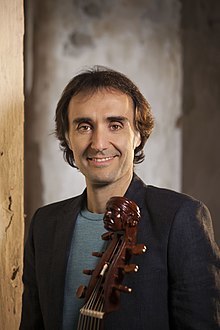
Sara Ruiz studied viola da gamba with Itziar Atutxa and Pere Ros in Madrid, and with Ventura Rico in Seville. She continued her studies with Lorenz Duftschmid in Germany and with Vittorio Ghielmi in Switzerland, attending masterclasses with Jordi Savall, Christophe Coin and Philippe Pierlot. She also studied chamber music with Rolf Lislevand.
She has collaborated with ensembles including Amsterdam Baroque Orchestra, Al Ayre Español, La Cetra Barockorchester, Armonico Tributo Austria, and Orquesta Barroca de Sevilla. In 2006 she was awarded a prize at the Bach-Abel competition in Köthen (Germany). Her first album as a soloist, “La voix de la viole”, with the ensemble La Bellemont, and dedicated to the music of Marin Marais, has received praise from critics. Her recording of the suites for viola da gamba by François Couperin will be released in 2019. She recently recorded the 12 Fantasies for viola da gamba by Georg PhilipP Telemann.
Since 2018 she is the director of the Consort de Violas da Gamba of the University of Salamanca.
23 She was a professor at the Conservatorio Superior de Sevilla and has taught masterclasses in Poland, Italy, Austria and Portugal. Currently, she combines her teaching activity at the Conservatory of Vigo with an intense concert activity.
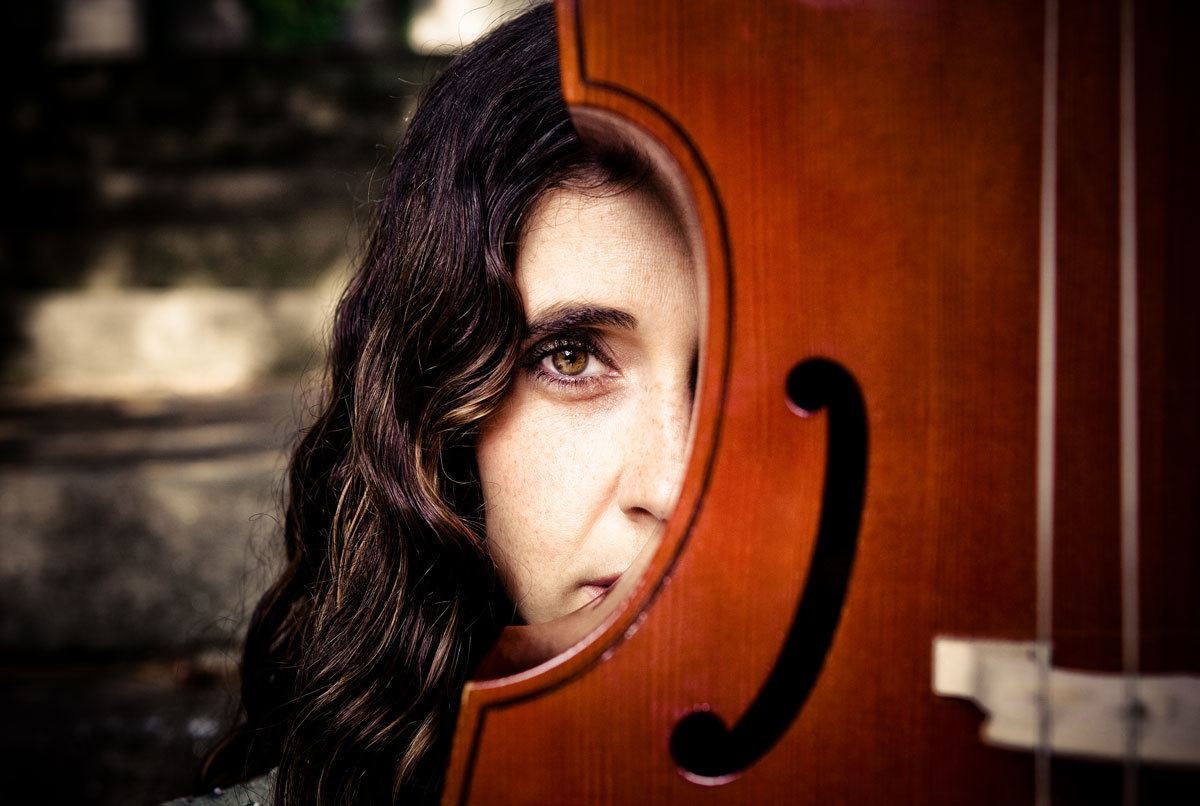
From the age of six, Imke David played the viol in the Consort of viols of the David family. From 1986 she studied viola da gamba with Jordi Savall at the Schola Cantorum Basiliensis. She attended lessons with Jesper Christensen, Andreas Staier and Rene Jacobs in Basel as well. From then on, she has been a member of the ensemble of Savall’s Hesperion XXI, she has participated in numerous opera tours (with René Jacobs at Concerto Vocale among others), and she has been invited to play with many renowned ensembles, on international Festivals, and on CD recordings. She was the first gamba player to win a soloist prize at the prestigious Musica Antiqua International Competition in Bruges (Belgium).
Her special interest within the solo repertoire is the music for Lira da gamba, the instrument about which she has published a book.
After teaching at the Escola Superior de Musica de Catalunya in Barcelona, she has been a
22 professor at the Liszt School of Music in Weimar since 2010, where she passes on her extensive knowledge and skills to her students at the Institut für Alte Musik.
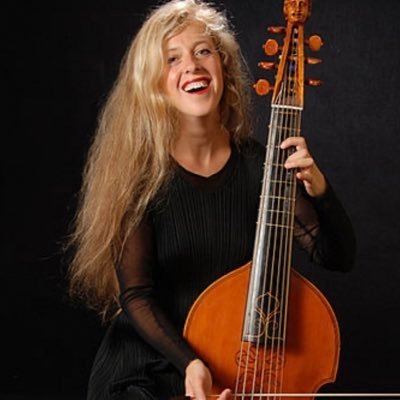
Mieneke van der Velden studied with Wieland Kuijken in The Hague and was awarded the soloist diploma in 1988. As one of northern Europe’s leading players, she has been invited to play at various festivals in the Netherlands, across Europe, and in Japan, Korea, Canada and Mexico. She has performed with a wide range of chamber music ensembles and as a soloist with renowned ensembles such as the Amsterdam Baroque Orchestra (Ton Koopman), Concerto Vocale (René Jacobs), Collegium Vocale (Philippe Herreweghe), Les Talens Lyriques (Christophe Rousset) Netherlands Bach Society (Jos van Veldhoven), and Cantus Cölln (Konrad Junghänel). Her repertoire includes music ranging from the French viola da gamba repertoire to 17th century English music and Bach’s obbligato solo arias and cello suites.
Mieneke van der Velden has recorded three discs with the Dutch label Channel Classics and six for Ramée, including with her ensemble L’Armonia Sonora, all of which have been well received. She currently teaches viola da gamba at the Conservatory of Amsterdam and at the Royal Conservatoire in The Hague, where she has started a consort tradition, together with the recorder, lute, and singing departments.
She plays two original French instruments, a bass viol made in 1617 by Antoine Despont, Paris, and a pardessus de viole made by Ludovic Guersan, Paris, 1768.
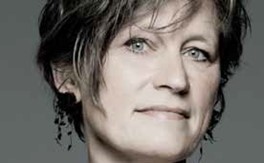
Born in Germany, Bettina Hoffmann lives in Florence where she pursues an active career both as a performer on the viol and baroque cello and as a musicologist. She has performed all over Europe and America, participating either as a soloist or with her ensemble Modo Antiquo at major festivals and venues. Her CDs Idées grotesques with works by Marin Marais, Scherzi Musicali for viola da gamba by Johann Schenck, and the first complete recording of the works by Diego Ortiz and Silvestro Ganassi stand out within her significant discography (more than 70 CDs, for Deutsche Grammophon, Brilliant Classics, Tactus and others). Two discs of her ensemble Modo Antiquo have been nominated for Grammy Awards
She is the author of the 'Catalogue of solo and chamber music for viola da gamba (LIM, 2001) and of La viola da gamba, a comprehensive history of the viol' recently translated in English for Taylor & Francis. She discovered and edited the only German treatise on the viol currently known, Instruction oder eine anweisung auff der Violadigamba.
Bettina Hoffmann teaches viola da gamba, baroque cello, performing praxis and baroque chamber music at the Conservatorio Arrigo Pedrollo di Vicenza and the Scuola di Musica di Fiesole.
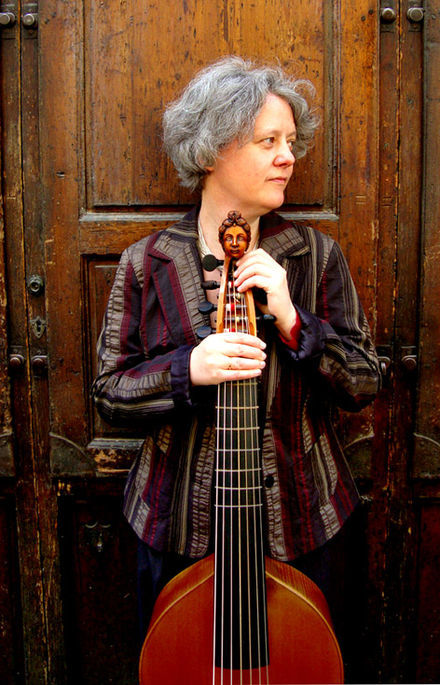
After completing a curriculum in Early Music at the Schola Cantorum in Paris, Marianne Muller chose the viola da gamba as the instrument with which she would embark on her life as a musician. She went on to study with Wieland Kuijken at the Royal Conservatory in The Hague and received her solo degree.
A participant as well as a witness of the Baroque revival, Marianne Muller has long been active as an accomplished concert performer; her career has taken her around the world both as a soloist and as a chamber musician. Audiences have heard her perform with ensembles such as “Les Arts Florissants”, “La Chapelle Royale, Amalia, Hespèrion XXI, Les Eléments, Les Nièces de Rameau, Gilles Binchois, William Byrd, Akadêmia and Les Inventions.
In 2016, Marianne met accordionist Vincent Lhermet: together, they founded the ensemble les inAttendus, combining their talents in an unconventional but self-evident duet. Their endless curiosity has led them to roam through past and present repertoires together.
She has been the viola da gamba-teacher at the Conservatoire National Supérieur de Musique et de Danse in Lyon, France, ever since the Early music Department was created there in 1988; since then she has never ceased to develop her teaching in new directions while continuing to probe the early-music-repertoire.
She is often called upon to teach master classes in French Conservatoires or for Academies both in France, in Barbastre, Nice and Sablé, Nice…) and abroad.

Jed Wentz has, in the course of a long career in Early Music, turned his hand to various tasks and has engaged with divers disciplines. He has performed on historical flutes, and conducted staged opera productions.
He has done archival research and published in scholarly journals. He has had a light-hearted relationship with journalism: for years, before it became something of a fad, he had a cooking column in a Dutch early music journal dedicated to recreating 18th-century recipes. He has worked intensively with Baroque dancers, and was declamation and acting coach to a HIP production of Jean-Jacques Rousseau’s melodrama Pygmalion at the Baroque theatre in Cesky Krumlov. Together with pianist Olga Pashchenko, he has created a number of scores to accompany films by Wegener, Murnau and Pabst. He is artistic advisor to the Utrecht Early Music Festival, teaches at the Amsterdam Conservatory, is assistant professor at the Academy of Creative and Performing Arts, Leiden University and has performed with the Newcastle Kingsmen.

João Luís Paixão is a baritone and researcher specialized in Early Music singing and acting. He works regularly with various ensembles and orchestras in The Netherlands and Germany, such as Seconda Pratica and Musica Poëtica, and he is a guest teacher at Utrecht and Den Haag Conservatories.
João Luís Paixão has, since 2011, intensified his activity in practice based research, giving special attention to eighteenth-century gesture, declamation and aesthetics, and its connection to singing. Together with Dr. Jed Wentz, he has worked on the reconstruction of monologues from the 17th through 19th centuries, collaborating with Oxford Brookes University, The Royal Theatre Society, Centre de Musique Baroque de Versailles, Centre d’Études Supérieures de la Renaissance, Anton Bruckner University Linz, Stockholm University and Amsterdam University. In 2014, he acted in and coached a semi-staged reconstruction of Gotter/Benda’s Medea, within the Laboratory of the Utrecht Oudemuziek Festival. The following year, he staged and acted in the reconstruction of Rousseau/Coignet’s Pygmalion in the historical theatre of Český Krumlov, a project developed in collaboration with “Performing pre-modernity” in the University of Stockholm. Currently living in The Hague, João Luís is actively engaged with local artists and promoters such as the Koninklijk Schouwburg and the ensemble Musica Poëtica in order to raise awareness to the dramatic and declamatory dimensions of early-modern repertoire. With this ensemble, he is currently presenting Brandes/Benda’s Ariadne auf Naxos to several audiences throughout The Netherlands.
João Luís Paixão is, since September 2017, a PhD-applicant at the University of Amsterdam, conducting an artistic research on facial expression on the 18th-century stage.

Born to a singer and a cantor–organist/conductor in 1954, Peter Kooij was destined to sing. He joined a children’s choir as a boy soprano at the age of six. After initially enrolling at the Utrecht Conservatory to study violin, he later switched to voice. He studied with Max van Egmond at the Sweelinck Conservatory in Amsterdam, where he earned a performance degree.
An authority on Renaissance and Baroque music, Kooij is in high demand as a baritone all over the world. He has worked with such conductors as Philippe Herreweghe, Ton Koopman, Frans Brüggen, Gustav Leonhardt and René Jacobs. Kooij has recorded the complete cantatas, Passions and other important vocal works by Bach with Masaaki Suzuki and the Bach Collegium Japan.
From 1991 to 2000, he taught at the Sweelinck Conservatory, and from 1995 to 1998 at the Musikhochschule in Hannover. Kooij has taught at the Royal Conservatoire in The Hague since 2006 and has been a guest lecturer at the Tokyo University of Fine Arts and Music since 2000. He accepted a teaching post at the Bremen University of the Arts in 2013. Kooij regularly gives masterclasses in Germany, Japan, Finland, France, Portugal, Belgium and Spain, among other countries. As a teacher, he places particular emphasis on textual interpretation.
